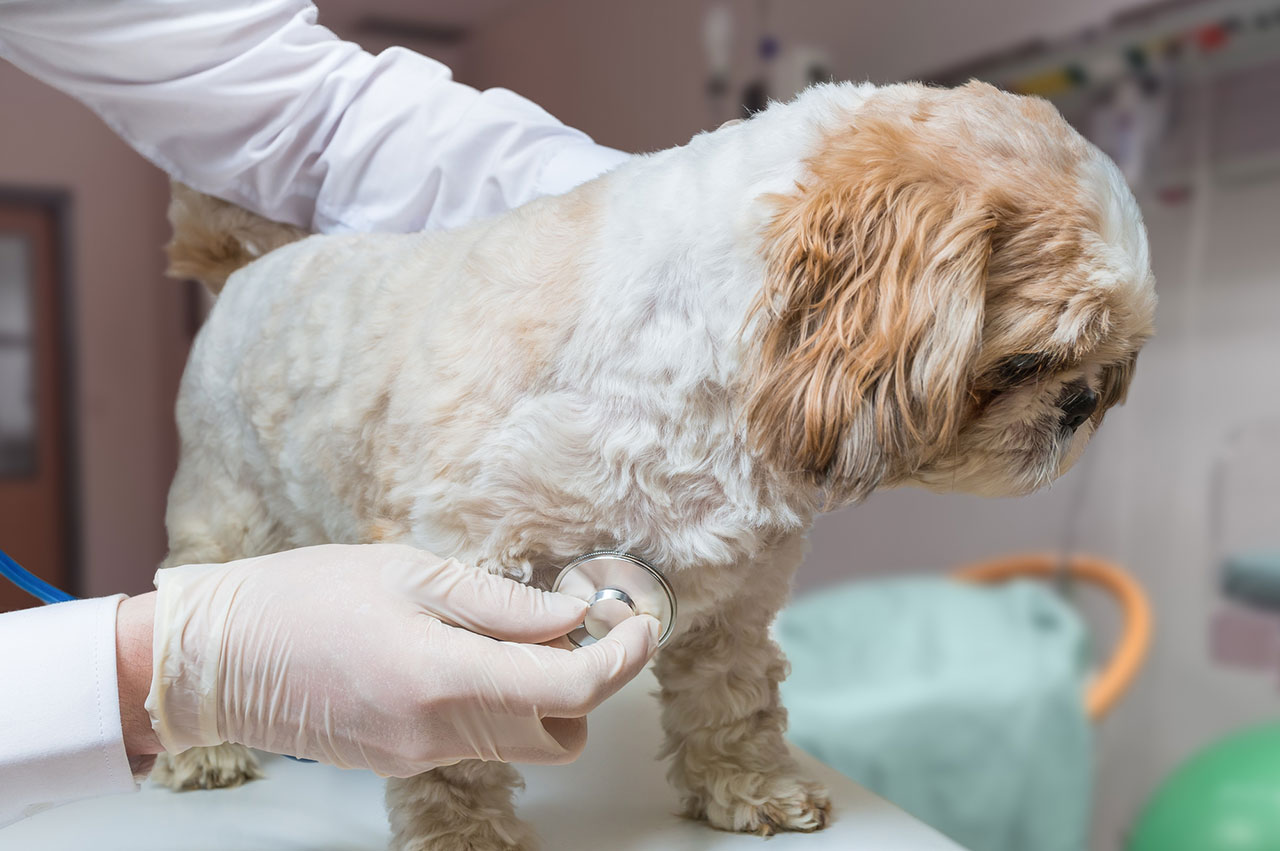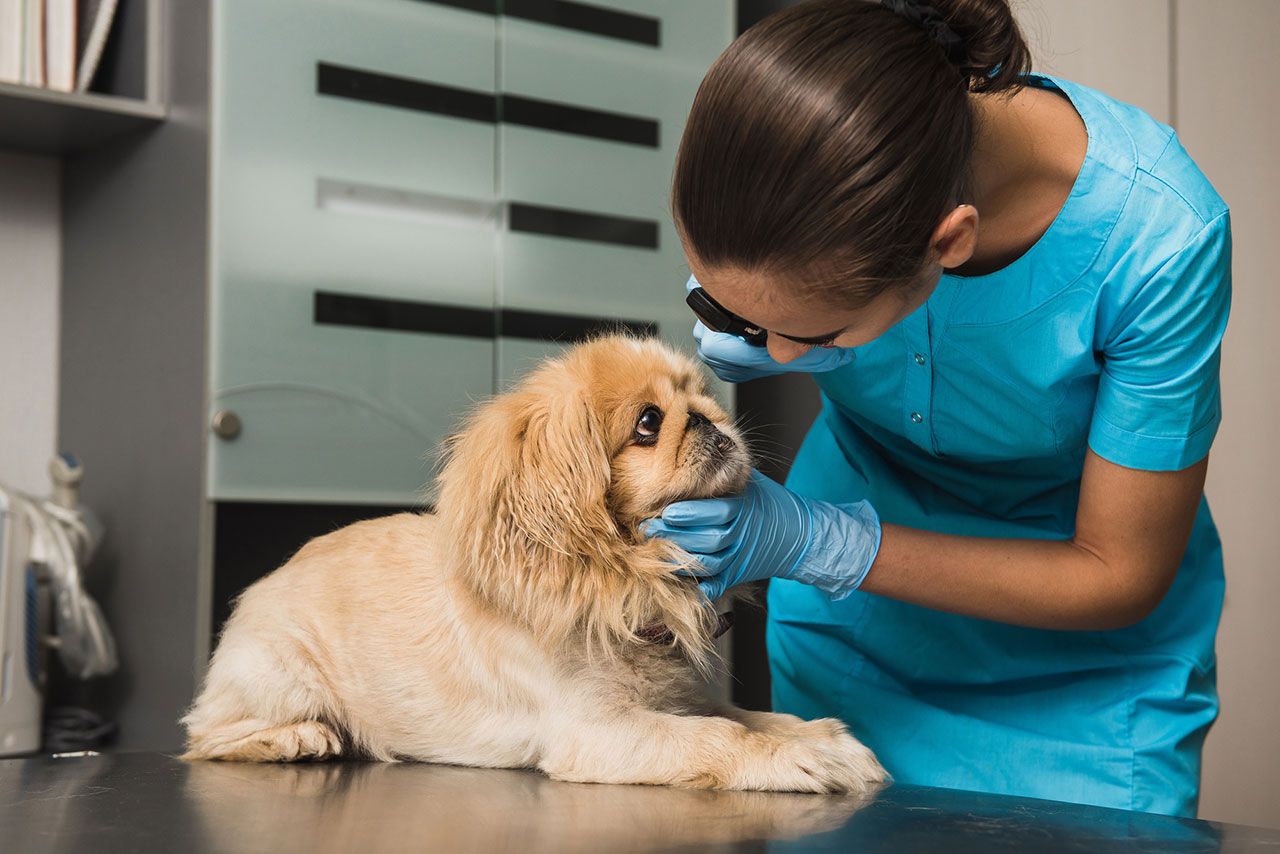How Long Can a Shih Tzu Live?
What is the Shih Tzu life expectancy? Shih Tzu dogs are a popular breed of small dogs known for their long life spans. We’ll tell you everything you need to know about how long these little dogs can live, including average life spans and things you can do to help extend your dog’s life.
Some dog owners might not be aware that this breed of dog typically has a lifespan of around 16 years, which is a long time for a dog of its size. It is excellent news for those looking for a small, loving companion who will be by their side for many years. They have some of the longest lifespans among all breeds of dogs recognized by the American Kennel Club.
While 16 years is the average lifespan of a Shih Tzu, some good news is they have been known to live even longer, up to 20 years or more, in exceptional cases. So if you’re thinking of adding a small breed like the Shih Tzu to your family, you can rest assured knowing that you will have plenty of time to form a strong bond with your new little lion dog even in old age.
What Are the Most Common Health Issues Affecting Shih Tzus?
Responsible pet owners, you must be aware of these health conditions and how to treat them in their purebred dogs.
- Allergies– Shih Tzus can suffer from allergies just like people. Common allergens include pollen, dust, mold, and dander. Most common allergies in dogs are environmental, such as pollen, grass, and dust mites. Shih Tzus can also be allergic to certain foods, such as wheat, corn, and soy.
Three types of allergies commonly affect Shih Tzus:
-
- Environmental allergies, also called atopy, are caused by airborne allergens such as pollen, dust mites, or mold.
- Food allergies are usually caused by a reaction to a protein in the dog’s diet.
- Contact allergies occur when the dog comes in contact with an allergen, such as flea bites or a specific type of grass.
- Ear infections– Shih Tzus are prone to ear infections because of their long ears. Ear infections can be painful and cause your dog to shake his head or scratch his ears. It is sad and causes your dog to shake his head or scratch at his ears. If you don’t treat it right away, it could lead to more severe problems such as deafness.
Here are the three main types of ear infections that afflict dogs:
-
- Otitis externa- is the most common type of ear infection in dogs, and it affects the outer ear and ear canal. The symptoms of otitis externa include itching, redness, swelling, and discharge from the ear. If left untreated, otitis externa can lead to a more severe middle or inner ear infection.
- Otitis media- is an infection of the middle ear that can cause pain, fever, and loss of balance. Otitis media can also lead to hearing loss if left untreated.
- Otitis interna- is an infection of the inner ear that can cause vertigo, loss of balance, and paralysis of the facial nerve. Otitis interna is the most severe type of ear infection and can be fatal if left untreated.
Ear infections are often caused by allergies, foreign objects in the ear, or an underlying medical condition. Treatment for ear infections typically includes antibiotics and cleansing of the ear canal. Surgery may be necessary in severe cases.
- Respiratory problems– Shih Tzus can have respiratory problems due to short noses. It can make them snore and make it difficult to breathe in hot or humid weather.
One common problem is tracheal collapse. It occurs when the cartilage in the trachea (windpipe) weakens and starts to collapse. It can cause a harsh, dry cough and make it difficult for your dog to breathe. If your dog has this condition, it will need to see a veterinarian for treatment.
Another respiratory problem that Shih Tzus can experience is called a brachycephalic syndrome. It occurs when the dog has a short, broad head and compressed airways. Dogs may snore loudly and have trouble breathing, especially in hot weather or after exercise.
If you think your dog may have respiratory problems, it’s essential to take them to see a veterinarian. There are many different treatments available, and the sooner you get started, the better chance your dog has of recovering.
- Dental problems– Shih Tzus are prone to dental problems because of their tiny mouths and their short muzzle. It can cause bad breath and tartar buildup.
The most common dental problem in Shih Tzus is Plaque buildup. Plaque is a film of bacteria that sticks to teeth and can cause cavities and gum disease; if not removed, it can harden into tartar, which is much more difficult to remove. The tartar on your dog’s teeth can cause gum disease, tooth decay, and bad breath. The best way to prevent plaque buildup is to brush your Shih Tzu’s teeth regularly and ensure a good diet.
- Eye problems– Shih Tzus can have eye problems due to their large eyes. It can include dry eye, tear stains, corneal ulcers, progressive retinal atrophy, and cataracts.
The most common eye problem in Shih Tzus is called “Entropion.” When the eyelid turns inward, causing the eyelashes to irritate the eye. It is painful and may require surgery to correct.
“Ectropion” is another common eye condition in Shih Tzus. When the eyelid turns outward, exposing the eye to debris and making it susceptible to infection. Surgery is also often needed to correct this problem.
Other eye problems that can affect Shih Tzus include:
-
- “Cherry eye,” in which the tear gland becomes prolapsed.
- “Cataracts” are gray areas in the eye that can lead to blindness.
- “Glaucoma” is an increase in pressure in the eye that can also lead to blindness.
Regular checkups with a veterinarian are essential to catch these problems early and prevent them from becoming severe.
- Skin problems– Shih Tzus can have skin problems due to their long fur. There are three main types of skin problems that can affect Shih Tzus:
-
- Allergies are the most common type of skin problem in dogs, and it is caused by various things such as environmental allergens, food allergies, and contact allergies.
- Infections can be bacterial, fungal, or viral, and they often occur when the skin is broken or damaged.
- Parasites such as fleas, mites, and ticks can also cause skin problems in dogs.
You can treat these skin problems with medicated shampoo, oral antibiotics, and anti-inflammatory drugs. In some cases, your veterinarian may also recommend allergy testing or a food trial to identify the cause of the allergies. If infections are severe, your dog may need to be hospitalized for treatment. Parasitic infestations will usually require topical or oral medication to kill the parasites and prevent re-infestation.
- Joint problems– Shih Tzus can have joint problems due to their small size. It can cause pain and stiffness.
There are different types of joint problems that can affect your Shih Tzu. Some of the more common ones include:
-
- Hip Dysplasia: This congenital condition results in an abnormal hip socket formation. It is painful and may require surgery to correct.
- Elbow Dysplasia: This is a similar condition that affects the elbow joint. It, too, can be painful and may require surgery to correct.
- Patellar Luxation: This is a condition in which the kneecap slips out of place. It is painful and may require surgery to correct.
- Arthritis: This is a degenerative condition that can cause pain and stiffness. It is more common in older dogs.
- Limping: This may be a sign of any above conditions, or an injury may cause it. If your dog is limping, have it seen by a veterinarian to determine the cause.
The treatment for joint problems will vary depending on the cause and severity. In some cases, surgery is the only thing to do to correct the problem.
- Kidney problems– Shih Tzus can have kidney problems due to their small size. It can cause dehydration and kidney stones.
There are two main types of kidney problems in Shih Tzus: congenital and acquired.
- Common congenital kidney problems in Shih Tzus include renal dysplasia, polycystic kidney disease, and ureteral abnormalities.
-
- Renal dysplasia- is when the kidneys do not develop properly in the womb, resulting in small, malformed kidneys that don’t function correctly.
- Polycystic kidney disease- is a genetic condition that causes cysts to form on the kidneys, causing them to become enlarged and dysfunctional.
- Ureteral abnormalities are defects in the tubes that connect the kidneys to the bladder, which can cause damage to your dog’s kidney.
- Acquired kidney problems are usually the result of another underlying health condition, such as diabetes or hypertension. Kidney infections, cancer, and trauma can also lead to acquired kidney problems.
- Liver problems– Shih Tzus can have liver problems due to their small size. It can cause jaundice and liver failure.
These are the most common liver problem among Shih Tzus:
Hepatic lipidosis is when there is too much fat in the liver. Maybe because of obesity, lack of exercise, and a poor diet.
Copper toxicosis is another common liver problem in Shih Tzus. There is too much copper in your dog’s liver, which can be caused by certain foods or supplements containing high copper levels.
Portosystemic shunts are also common in Shih Tzus. When blood bypasses the liver, it leads to several problems, including malnutrition and liver failure.
- Cancer– Shih Tzus can be susceptible to cancer due to their small size. It can include lymphoma, leukemia, and bone cancer.
Many types of cancer can affect Shih Tzus. Some of the more common types include:
Hemangiosarcoma: This type of cancer originates in the blood vessels and is one of the most aggressive and deadly forms of cancer in dogs. It is most commonly found in the spleen but affects other organs like the heart, liver, and kidneys.
Lymphoma: This type of cancer originates in the lymph nodes and can spread to other organs. It is common in Shih Tzus.
Bone Cancer: This type of cancer affects the bones and is most commonly found in the ribs or spine.
Skin Cancer: This type of cancer originates in the skin and can affect anybody. It is most commonly found on the head, neck, or legs.
Gastrointestinal Cancer: This type of cancer affects the gastrointestinal tract and can include the stomach, intestines, or rectum.Breast Cancer: This type of cancer originates in the mammary glands and is most commonly found in female dogs.
What Things Can You Do to Help Your Shih Tzu Live a Longer, Healthier Life?
Your Shih Tzu is a small but mighty dog, some times called a lion dog, that needs plenty of love and cares to live a long, healthy life in good health.
Shih Tzus are delightful dogs, and if you want to make sure that yours lives an entire and happy life, here are a few tips:
- Make sure they get enough exercise. A healthy Shih Tzu will have plenty of energy and be less prone to obesity and other health problems in addition to a healthy diet.
- Feed them a nutritious diet. A balanced diet is essential for all dogs, tiny breeds like Shih Tzus and can help prevent things like heart disease.
- Brush their teeth regularly. Dental care is essential for all dogs, but small breeds are especially prone to dental issues.
- Have a regular grooming appointment for them.
- Keep up with their vaccinations. Vaccinations help protect your Shih Tzu from deadly diseases.
- Take them to the vet for regular checkups. Regular checkups can help catch health problems early when they’re easier to treat.
Your Shih Tzu will be a loyal and affectionate companion for many years to come with love and care!
If you’re looking for a low-maintenance furry friend who loves to cuddle and always makes you laugh, then a Shih Tzu may be the perfect dog for you. They are known for being friendly and good with children, making excellent family pets. Plus, they don’t require a lot of exercise, so they’re perfect if you lead a busy lifestyle. And who knows? You may find that they help improve your health in the process. Owning a Shih Tzu will indeed bring lots of happiness into your life. Have you ever considered becoming one of many Shih Tzu owners?




